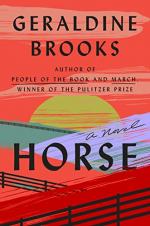|
This section contains 2,065 words (approx. 6 pages at 400 words per page) |

|
Race and Racism
Through her portrayal of both friendships and romances between Black and white characters in Horse, Brooks raises doubts around the ability of white people to fully and honestly empathize with oppressed groups. She suggests that this potential inability characterizes white people throughout American history; in the mid-19th century, Mary Barr Clay often positions herself as a friend to Jarret Lewis, yet she sometimes overlooks his enslavement at her grandfather’s hands. At one point, Mary Barr carelessly remarks that her father “calls himself an emancipator, but he makes my mother the most complete slave I know” (81). Here, Brooks suggests that Mary Barr is, in many ways, unable to fully see Jarret. Mary Barr remarks that her mother—a free white woman—is the “most complete slave [she knows]” while in the company of a young Black man whom her grandfather legal owns. Her...
|
This section contains 2,065 words (approx. 6 pages at 400 words per page) |

|




